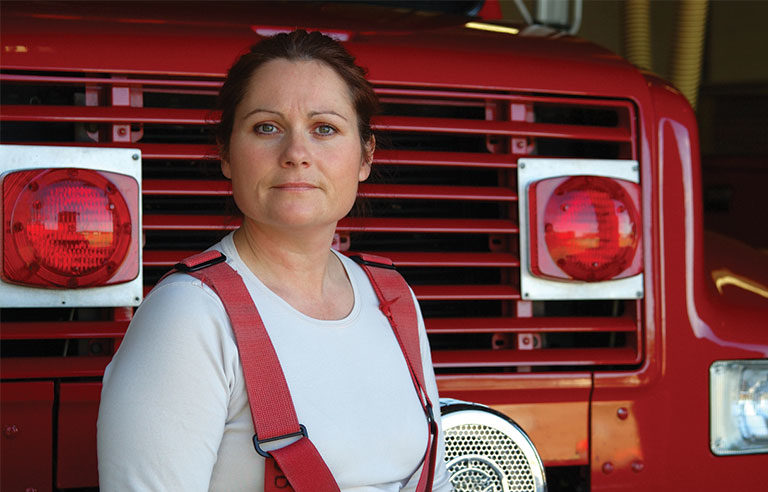‘Hypermasculine’ firehouse culture may hinder women from speaking up about safety: study

Philadelphia – Female firefighters who feel unwelcome or shunned in the male-dominated culture at some firehouses are less likely to be active participants in the department’s safety culture, according to a new study from Drexel University.
Researchers at the university’s Center for Firefighter Injury Research & Safety Trends interviewed and conducted focus groups with female firefighters and leaders from various departments to learn what unique safety behaviors women contribute to firefighting, how their contributions could lead to improved safety, and whether psychological and cultural challenges to implementing their contributions play a role.
Study participants reported that the “hypermasculine” atmosphere of fire departments can affect them in many ways. They feel ostracized, discriminated against, harassed, threatened and sheepish because of the way their male colleagues treat them and their approach to danger and its consequences.
Because of this, women firefighters say they are reluctant not only to share safety practices with their male co-workers, but even to practice the accepted ones. This includes asking for help and reporting injuries, both of which can be viewed as weaknesses by male colleagues, the participants reported. Underlying it all, sexual harassment can harm the foundation of a firehouse.
For better equality, researchers suggest departments and firehouses:
- Strictly enforce a zero-tolerance antidiscrimination policy.
- Be open to input and perspectives regarding all safety matters from all parties.
- Understand that the capabilities of all firefighters differ. “Make the job fit the worker, not the other way around,” researcher Jennifer A. Taylor, an associate professor at Drexel, said in an Oct. 3 press release.
The study was published in the Journal of Workplace Behavioral Health.
Post a comment to this article
Safety+Health welcomes comments that promote respectful dialogue. Please stay on topic. Comments that contain personal attacks, profanity or abusive language – or those aggressively promoting products or services – will be removed. We reserve the right to determine which comments violate our comment policy. (Anonymous comments are welcome; merely skip the “name” field in the comment box. An email address is required but will not be included with your comment.)

